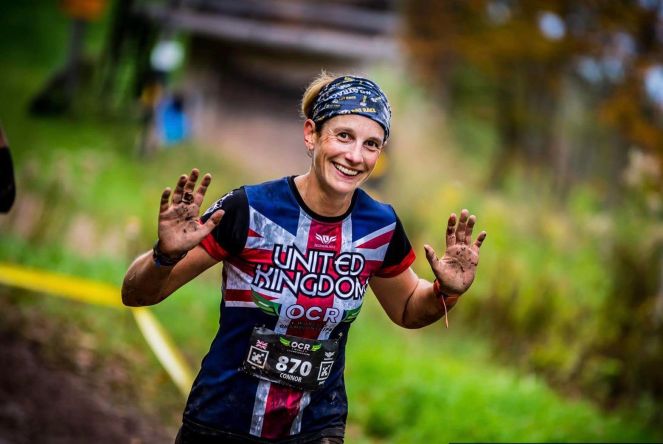By Ella Connor
It’s a funny time of year to be involved with fitness. On the one hand it’s wonderful to see so much focus in the media and in general consciousness on the things that I value – health, fitness, strength, all the mental and physical benefits that come from exercise. Having those things in the forefront of people’s minds, if only for a few weeks, is undoubtedly a good thing. On the other hand though, I do find some of the messages around it, particularly on social media, to be unhelpful and, more importantly, actually potentially damaging in terms of people sustaining new fitness habits.
An awful lot of the fitness messages that we receive at this time of year are grand in scale – “New Year, New You”, “Set Your Goals and Smash Them”, “Transform Yourself in 2020”, “Go hard or go home”. That sense of optimism and unlimited possibility is what gets an awful lot of people through the gym doors in January. But I’m not convinced it’s the best approach to keeping them there in February, March or 2021. Now, I’m not knocking big goals – I’ve trained for things in my life that a few years earlier, I wouldn’t have dreamed possible – but I didn’t start on the journey with those things in mind. Huge transformations are possible in anyone’s life, but they don’t happen overnight. The difficulty with starting your fitness journey with a big, transformative goal is that it won’t happen quickly and, quite often, it may not happen at all. Fitness isn’t linear, life gets in the way, stuff happens and best laid plans can go awry. Sometimes it turns out that the goal simply isn’t possible. I know we’re all supposed to believe that “if you dream it, you can do it”, but the hard reality of our fallible bodies, with their individual strengths, weaknesses and quirks is that sometimes you can’t. And it’s often not until you try that you find that out.
If that’s the case, and your journey was entirely motivated by a fixed, inflexible end goal or vision, it’s hard not to see it as failure. And that sense of failure can kibosh the entire operation – “I tried, I failed, I give up”. Out goes the baby with the bath water – too much investment in an overarching end goal as the focus of a regime invariably means the little victories along the way go unnoticed. If your entire focus is being a size 10, and after three months of training you’re a size 12 with much better movement patterns and greater strength, chances are you’re going to see yourself as a failure and maybe throw away all those hard won benefits which could have taken you in a new direction.
As a trainer, whilst I love new clients who have enthusiasm for change, I am always concerned about those who bubble over at the start with talk of how this is going to change their lives and be a totally fresh start for a new them. That all or nothing spirit and heavy investment in an imagined, often slightly abstract, outcome is unlikely to last through the inevitable set backs and hiccups that any kind of fitness journey involves. And it’s hard to get people with that mindset to appreciate the achievement of adding 5kg to their deadlift or improving their movement pattern for a squat because it doesn’t feel relevant to the reason why they are there.
Often it’s the clients who start out with the aim of just starting who last the course. When you start any kind of fitness regime, it’s not a bad idea to simply see the process as the goal. Commit to three workouts a week rather than losing three stone, or getting totally shredded or being a size 10 by March. Decide that three workouts or runs or yoga sessions a week is good thing for you to do (because it definitely is!), do it for that reason and just see what happens.
Chances are, as you progress, you’ll discover your own new smaller, measurable, more personal, achievable goals (nail that downward dog posture, run a sub 30 min 5 km, deadlift your body weight) which will motivate you along the way much better and lead to bigger goals in time. You might actually discover that your chosen end goal is an entirely different beast from the one you thought it was at the start – some of my best moments as a trainer have been when I’ve seen my client’s thoughts switch from a generic long term fat loss or aesthetic goal to a personal target of strength or speed – that’s when I know they have real investment in the process and a chance of genuine change.
Slow change doesn’t make for great copy. “Be consistent and see what happens” is never going to be as catchy as “smashing your goals”. But it might just work.

Ella Connor
I am a former lawyer turned personal trainer and fitness instructor. I love to lift heavy objects, run and climb obstacles. I work and train in Essex, UK.
Such an important message. Thanks for writing this post!
I love this. It can’t be said enough, as far as I’m concerned. Your final point: ‘Slow change doesn’t make for great copy. “Be consistent and see what happens” is never going to be as catchy as “smashing your goals”. But it might just work.’ Really reflects the attitude Sam and I always brought to the blog. Our message and our stories are so moderate that they don’t make for gripping reading. But hey! It works! My lifestyle is vastly different today than it was seven or so years ago when we were just starting out with the blog and our fittest by 50 challenge. And yet I can still get into that transformational mindset amidst all the January hype.